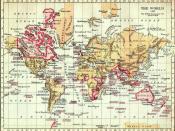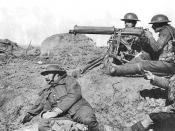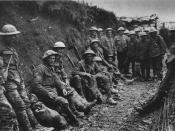Great Britain: Not Just Known for Fish and Chips
Harsh accents, yellow teeth, and fish and chips is what comes to most people's minds first when they think of Great Britain. How important can a nation be when the citizens drive on the wrong side of the street, the law enforcement officers carry sticks instead of guns, and their monarchs are just there for looks? The little island can be very important. In fact, no country has been more influential throughout history than Great Britain. Through its religion, culture, and politics, "the mother of the world" has reached all countries around the world in one way or another.
One of the most influential acts of the British was the development of the Protestant faith. Henry VIII wanted his wife, Catherine of Aragon, to give birth to a son to keep the Tudor name in control of England. She gave birth to 6 kids; however, five of them died at birth and the only survivor was a female.
By 1530 Catherine was too old to bare anymore children, so Henry VIII wanted to marry a younger wife, Anne Boleyn. To do this, Henry need permission from the Pope. Henry told the Pope that his marriage to Catherine was invalid since she had married his brother, Arthur, before him. The Pope didn't buy Henry's claim and declared his marriage to Anne invalid. Henry's reactions was to declare that the Pope no longer had any power in England. The English parliament passed an act declaring Henry VIII as the Head of the Church of England. Slowly, Henry began to transition the faith of the English from Catholic to Protestant ("Encyclopedia of British History: 1500-1950"). Now that England, one of the most powerful countries of the time, was practicing the Protestant religion, other countries...


